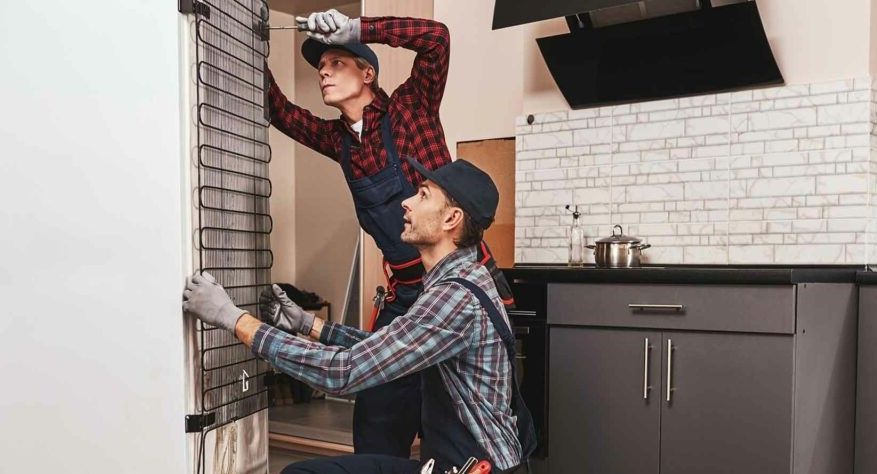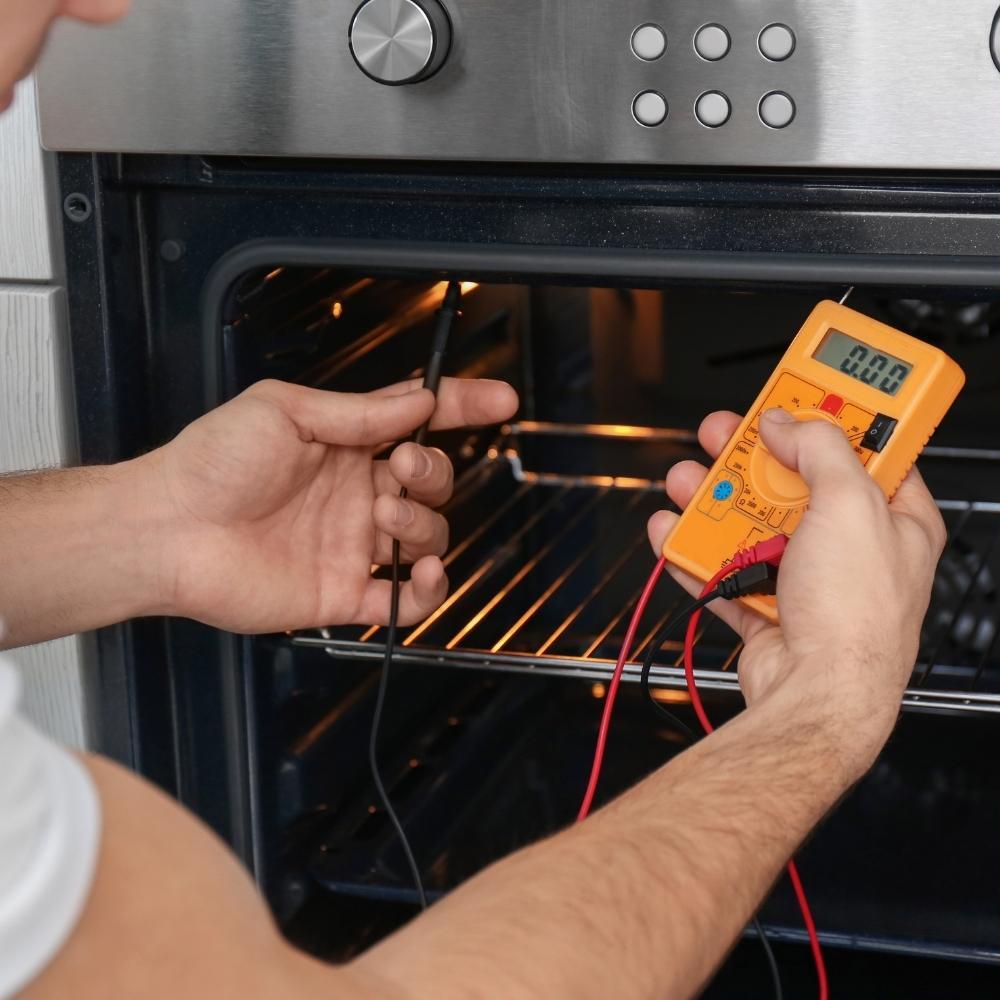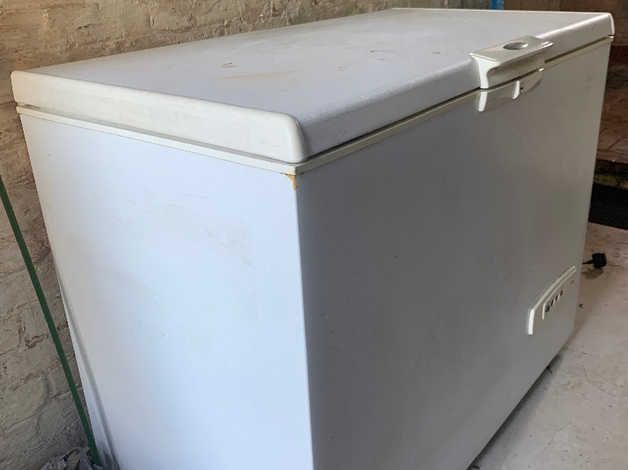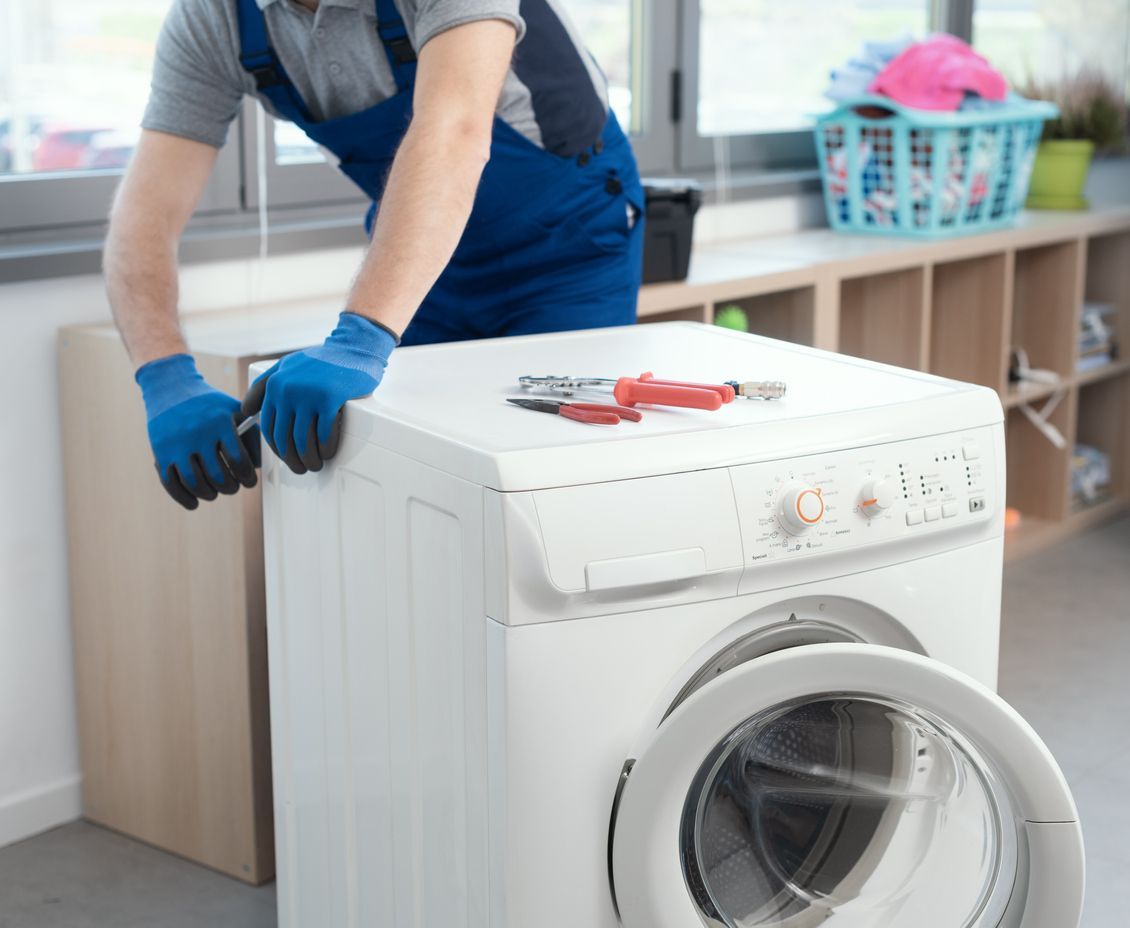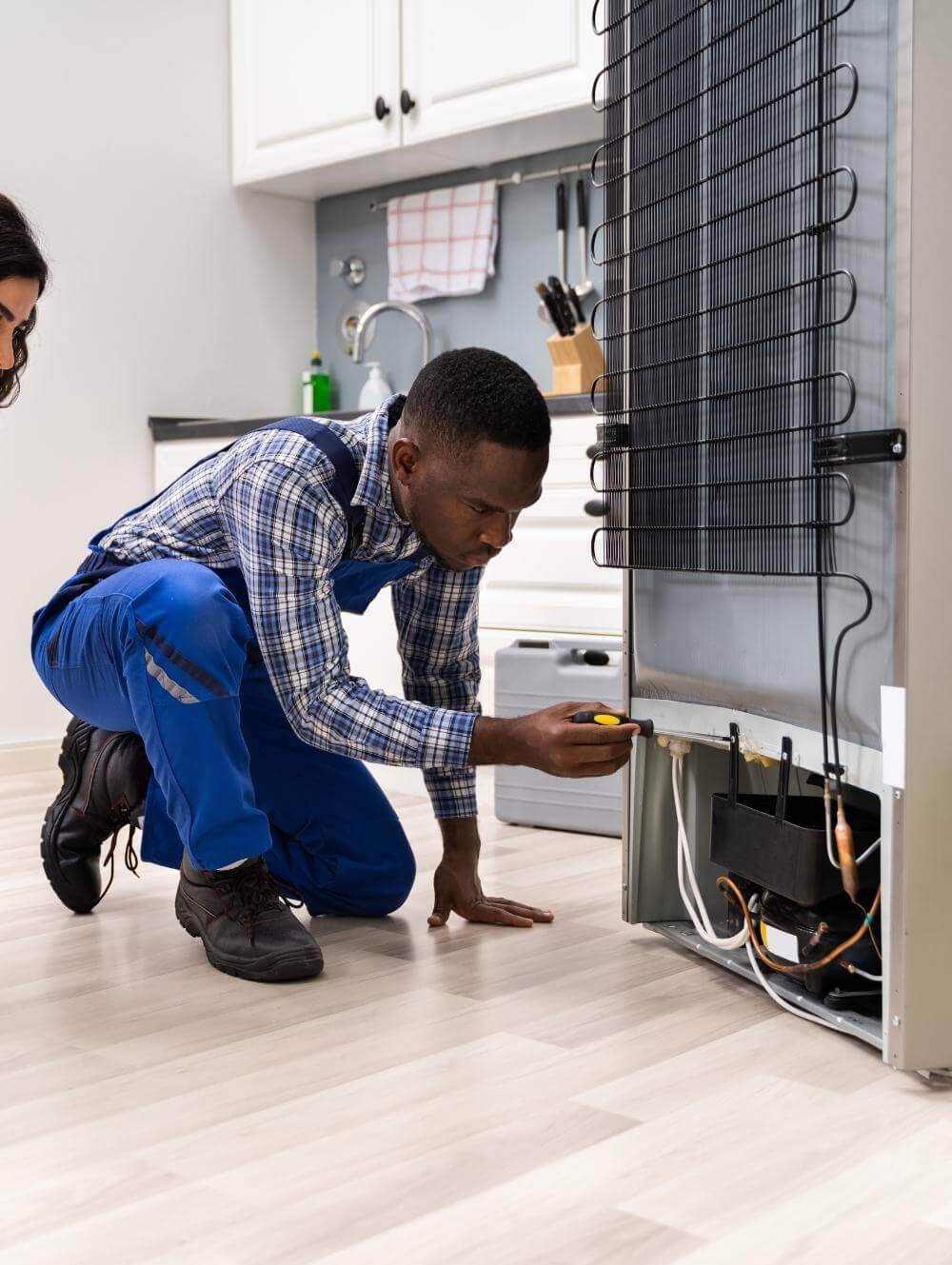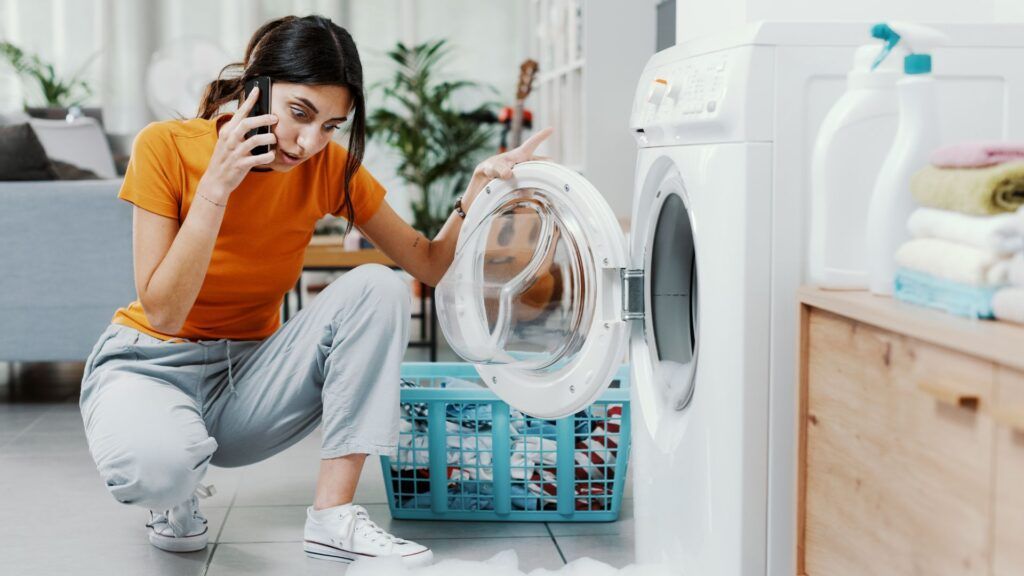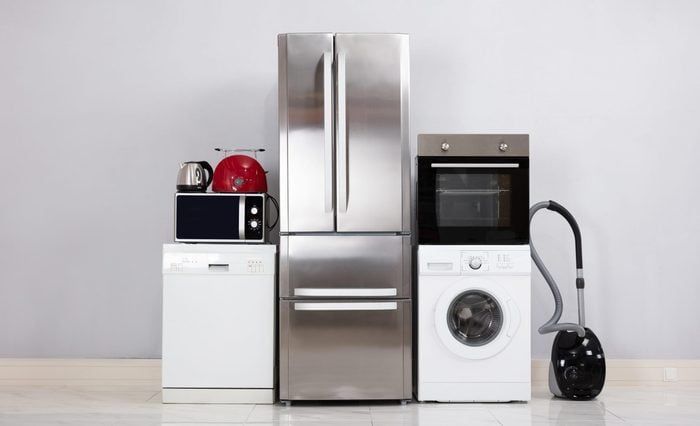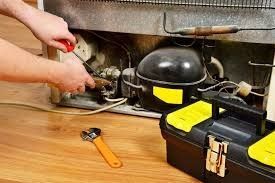How to fix my dryer?
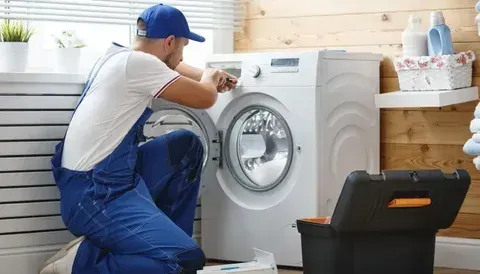
There’s nothing worse than finally getting around to wash that mountain of dirty clothes in your closet only to realize your dryer has some fault. In most cases, we all check that the dryer is properly plugged into the electrical outlet or check the central home electrical box to see if a fuse has blown or a circuit breaker has tripped. But sometimes the problem is beyond these issues, and we need to look for an "appliance repair near me."
So whether you're a DIY enthusiast or seeking insights before calling in the professionals, in this blog we'll discuss some causes of dryer malfunctioning and ways to fix them no matter what brand it is. This will save you time and money and help you get back to your routine as soon as possible.
1. How to fix my dryer if it is not starting?
This problem can occur for several reasons. It’s possible that the door latch is broken, or something is preventing the door from closing. It could also be that the start switch is malfunctioning. Door switches wear out from normal use, but repeatedly slamming the door can speed up their demise.
Start by checking the plunger located on the door for dryer troubleshooting. If it’s missing or bent, replace it. If the plunger checks out, the next step of dryer troubleshooting is to remove the top cabinet panel to gain access to the door switch. Test the switch for continuity. If not, then replace it. Sometimes they can also just get coated with lint. Use a cotton swab and a bit of rubbing alcohol to clean the contact areas.
If the switch is good, test the thermal fuse mounted on the blower. If you have had a power outage or surge in your home, it is possible that the thermal fuse in the dryer control panel is damaged. This is to prevent the dryer from catching fire, which is obviously a very good thing! The fuse is inexpensive and easy to replace. For those who have a gas dryer with a lint filter in the door, access the thermal fuse by opening the bottom panel. If the filter slides into the top of the machine, remove the entire front panel. On an electric dryer, remove the rear service panel.
2. How to fix my dryer that won't spin/rotate?
This can occur if the belt that connects to the motor and causes the drum to rotate is broken, the motor itself is defective, or if the thermal fuse has blown out.
Usually, the belt is broken. To replace the belt, remove the front cabinet panel and lift the entire drum out of the cabinet. Then, vacuum it to suck out all the lint. Then spin the tensioner roller by hand to see if it runs smoothly and examine it for cracks. Replace the tensioner if it fails either test.
Reinstall the drum and wrap the new belt around it (ribs facing the drum). Some tensioners are mounted behind the motor, so they’re difficult to see from the front access panel. You’ll have to do this by feeling. Reach your hands around the blower housing and lift the tensioner up while you route the belt around the motor pulley.
Although we have discussed the DIY method, as the system is complex, we recommend approaching a professional for appliance repair Louisville KY to inspect your dryer.
3. How to fix my dryer when it is making noises?
If your dryer is making clanging or knocking noises, start with the simplest fix. Stop the drying cycle and check inside. Are all buckles on clothes fastened? Are zippers zipped? Are there coins, cell phones, or keys taking a spin? Remove the offenders and the noise should stop.
If your dryer is still noisy or vibrates, it might be off-balance. You must take steps to level the dryer, or it will never be quiet, and further damage to the structure can occur.
If the dryer is making screeching or squealing noises, the problem is worn drum bearings or supports. Unless you are very handy with tools, this will require an expert appliance repair service near you because the entire unit must be disassembled.
4. How to fix my dryer if it is taking too long to to dry clothes?
If it takes forever for a load of clothes to dry and your clothes come out covered in lint, clean out that lint filter! If the lint filter is full, then air is not flowing freely and your machine is forced to work longer than necessary.
After you empty the filter, give it a good cleaning to get rid of any residue from dryer sheets. You should also use a bit of rubbing alcohol to clean the electronic moisture sensors (one or two little metal strips inside the dryer drum). You'll get your dryer working more efficiently and prevent a possible fire.
If your dryer seems to operate normally yet it’s taking more time than usual to dry a load of clothes, there could be other reasons like you have overloaded the dryer, your washing machine isn’t removing enough water during the spin cycle or the dryer vent or vent pipes could be clogged, preventing water vapor from evaporating properly. This could also be a fire hazard.
If the dryer drum seems too full, try dividing loads of wet laundry into smaller loads. Most manufacturers recommend loading your dryer 2/3 full or less but check your owner’s manual for details.
If you suspect your washing machine may not be removing enough water during the spin cycle, check the owner’s manual for tips on how to troubleshoot this issue.
Try checking the dryer vents and vent pipes to make sure they’re clear. If you spot a clog, remove it before continuing to use your dryer. Use a long-handled bristle brush to clean out the dryer vent. The vent should be as short as possible between the machine and the outside exhaust vent to prevent clogs. If the venting system is long and you can't reach the entire length with a brush, use a leaf blower to clean the system or hire a trained appliance repairer near you.
Also, if you have a smart dryer with an automatic sensor that detects when clothing is dry, the sensor could be defective. If you suspect that the timer or automatic sensor isn’t working properly, look for appliance repair near you to inspect your dryer.
5. How to fix my dryer if it doesn't stop?
Most dryers have an internal mechanism that prevents the drum from spinning when the door is open. If your dryer continues spinning even after you’ve opened the door, it’s possible that the door switch is blocked or broken, or the door sensor — if there is one — is malfunctioning.
Try replacing the door switch. If the dryer continues to operate call a professional appliance repair near you to inspect it.
6. How to fix my dryer if the door won't stay shut?
If your dryer door won’t stay closed, chances are the latch is either bent or missing, or the strike is worn. Replace the bent or broken latch by taking it out. Then install the new one, pushing in firmly until the locking tabs seat. Next, protect the door’s finish with tape and remove the old strike. Jam a small screwdriver into the strike and bend the metal locking tab inward. Pry upward with a second screwdriver to pop it out. Snap in the new strike and you’re back in the laundry business.
Fast & affordable appliance repair near you - A+ Appliance Repair
If you have tried all the troubleshooting steps and your dryer still has issues, it’s time to call an appliance repair expert near you. There could be other issues going on related to faulty electrical components or other complex parts of the dryer. Problems like these should be safely diagnosed and repaired by a trained professional.
A+ Appliance Repair has a team of qualified and courteous technicians you need to get your dryer spinning again. Our local teams offer up-front pricing, flexible scheduling, guaranteed quality parts, and quality work in Louisville and nearby areas. We offer 24/7 repair services —no matter the brand or where you bought them.
TAGLINE
Testimonials
These folks are the best! My oven stopped heating, and I was worried about the cost. They were quick, explained everything, and even gave me some handy tips. Five stars for sure.
James Faber
Jan 12, 2024
Couldn’t be happier with the service. My dishwasher was leaking, and they fixed it up perfectly. The whole process was smooth, and the tech was really nice. Highly recommend them!!
Jane Wilson
June 30, 2024
Wow, these guys are amazing! My fridge broke down right before a big family dinner, and they saved the day. The tech was super friendly and fixed it in no time. Definitely my go-to for any appliance issues!
Jeremy Johnson
July 10, 2024
Had a great experience with this company. My washing machine was acting up, and they came out the same day I called. The technician knew exactly what to do and got it working again. Super happy with the service.
Michelle Brown
June 25, 2024
